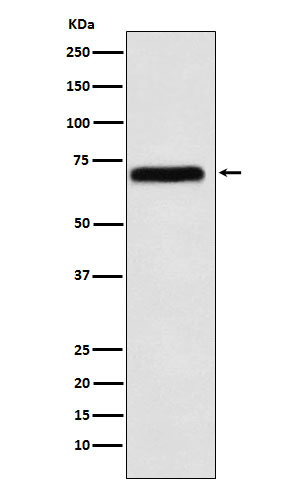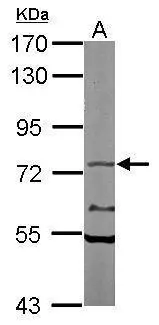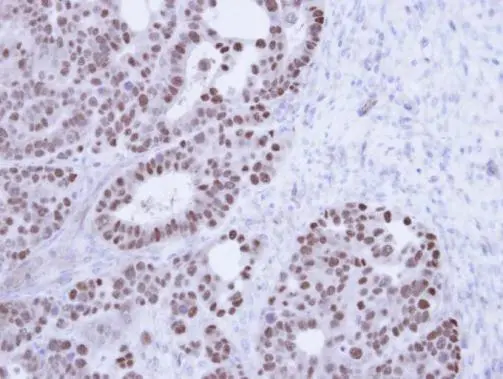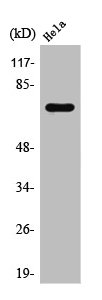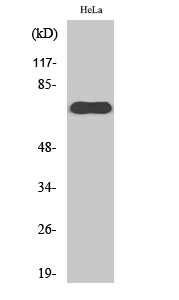TAP antibody [53H8]
GTX17459
ApplicationsImmunoFluorescence, ImmunoPrecipitation, Western Blot, ELISA, ImmunoCytoChemistry
Product group Antibodies
ReactivityHuman
TargetNXF1
Overview
- SupplierGeneTex
- Product NameTAP antibody [53H8]
- Delivery Days Customer9
- Application Supplier NoteWB: 0.5-1 microg/ml. *Optimal dilutions/concentrations should be determined by the researcher.Not tested in other applications.
- ApplicationsImmunoFluorescence, ImmunoPrecipitation, Western Blot, ELISA, ImmunoCytoChemistry
- CertificationResearch Use Only
- ClonalityMonoclonal
- Clone ID53H8
- Concentration~1.5 mg/ml
- ConjugateUnconjugated
- Gene ID10482
- Target nameNXF1
- Target descriptionnuclear RNA export factor 1
- Target synonymsMEX67, TAP, nuclear RNA export factor 1, mRNA export factor TAP, tip associating protein, tip-associated protein
- HostMouse
- IsotypeIgG1
- Protein IDQ9UBU9
- Protein NameNuclear RNA export factor 1
- Scientific DescriptionThis gene is one member of a family of nuclear RNA export factor genes. Common domain features of this family are a noncanonical RNP-type RNA-binding domain (RBD), 4 leucine-rich repeats (LRRs), a nuclear transport factor 2 (NTF2)-like domain that allows heterodimerization with NTF2-related export protein-1 (NXT1), and a ubiquitin-associated domain that mediates interactions with nucleoporins. The LRRs and NTF2-like domains are required for export activity. Alternative splicing seems to be a common mechanism in this gene family. The encoded protein of this gene shuttles between the nucleus and the cytoplasm and binds in vivo to poly(A)+ RNA. It is the vertebrate homologue of the yeast protein Mex67p. The encoded protein overcomes the mRNA export block caused by the presence of saturating amounts of CTE (constitutive transport element) RNA of type D retroviruses. Alternative splicing results in multiple transcript variants. [provided by RefSeq, Jul 2008]
- ReactivityHuman
- Storage Instruction-20°C or -80°C,2°C to 8°C
- UNSPSC12352203

